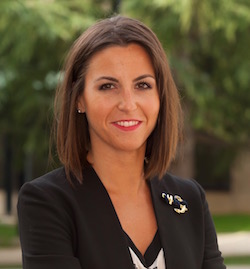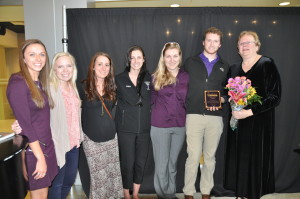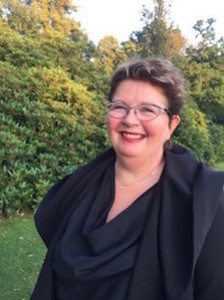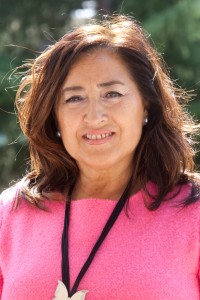![marianne_gjertsen_vann_prisen_for_beste_poster_medium[1]](https://internationalfamilynursing.org/wp-content/uploads/2016/07/marianne_gjertsen_vann_prisen_for_beste_poster_medium1.jpg) Marianne Fjose, is an assistant professor in the Faculty of Health Studies, Sogn og Fjordane University College, Norway. As part of her PhD research, she is conducting a mixed methods study to examine how elderly patients with cancer in the palliative phase and their nearest relatives experience their relationship while under In Home Hospice Care. The project is funded by Sogn og Fjordane University College, Faculty of Health studies, and will be completed by March 2017. Qualitative data will be collected using family group interviews and quantitative data from two standardized measures: the Caregiver Reaction Assessment and the Social Provisions Scale. Three articles are in process and will report findings about: 1) relationships, interactions, and challenges in family life; 2) different family caregivers’ perspectives (e.g., spouses, daughters, sons/children-in-law) on caregiver burden and social support; and 3) patients’ and family members’ experiences with the health care services. Supervisors are: Professor Ellen Karine Grov (Oslo and Akershus University College of Applied Sciences, Institute of Nursing, Oslo, Norway); Professor Marit Kirkevold (University of Oslo, Faculty of Medicine, Department of Nursing Science, Oslo, Norway); and Professor Grethe Eilertsen, (Buskerud and Vestfold University College, Faculty of Health Sciences, Oslo, Norway). For more information contact IFNA member, Marianne Fjose.
Marianne Fjose, is an assistant professor in the Faculty of Health Studies, Sogn og Fjordane University College, Norway. As part of her PhD research, she is conducting a mixed methods study to examine how elderly patients with cancer in the palliative phase and their nearest relatives experience their relationship while under In Home Hospice Care. The project is funded by Sogn og Fjordane University College, Faculty of Health studies, and will be completed by March 2017. Qualitative data will be collected using family group interviews and quantitative data from two standardized measures: the Caregiver Reaction Assessment and the Social Provisions Scale. Three articles are in process and will report findings about: 1) relationships, interactions, and challenges in family life; 2) different family caregivers’ perspectives (e.g., spouses, daughters, sons/children-in-law) on caregiver burden and social support; and 3) patients’ and family members’ experiences with the health care services. Supervisors are: Professor Ellen Karine Grov (Oslo and Akershus University College of Applied Sciences, Institute of Nursing, Oslo, Norway); Professor Marit Kirkevold (University of Oslo, Faculty of Medicine, Department of Nursing Science, Oslo, Norway); and Professor Grethe Eilertsen, (Buskerud and Vestfold University College, Faculty of Health Sciences, Oslo, Norway). For more information contact IFNA member, Marianne Fjose.
Dr. Nuria Esandi Promotes Family Nursing of Older Adults and Their Families
 Nuria Esandi Larramendi, PhD, MSC, RN, is lecturer of Older People Nursing and Family Nursing at the Faculty of Nursing, Department Nursing Care for Older Adults, University of Navarra, Spain. She is also an investigator at the Navarra Institute for Health Research (IdiSNA).
Nuria Esandi Larramendi, PhD, MSC, RN, is lecturer of Older People Nursing and Family Nursing at the Faculty of Nursing, Department Nursing Care for Older Adults, University of Navarra, Spain. She is also an investigator at the Navarra Institute for Health Research (IdiSNA).
The philosophy that underpins Dr. Esandi’s research and teaching is that family-centred care is essential for the promotion of health and wellbeing of older adults and their families. The primary focus of her program of research is the family experience of living with chronic illness, with special emphasis on the early stage of Alzheimer`s disease. In her research, she seeks to learn from families how nurses can provide the resources and support their need to “keep family balance” while carrying out long term care activities. For more information contact IFNA member, Nuria Esandi
Dr. Norma Krumwiede Receives 2016 Dr. Duanne Orr Teacher of the Year Award
Dr. Norma Krumwiede, Professor, School of Nursing, Minnesota State University, Mankato, USA, recently received the 2016 Dr. Duane Orr Teacher of the Year Award from the Minnesota State Student Association. Dr. Krumwiede’s work focuses on family nursing and use of simulation. She currently serves as the Chair of the IFNA Awards Committee. For more information contact IFNA member, Norma Krumwiede.
Website: Norma Krumwiede, Minnesota State University

Dr. Hafrún Finnbogadóttir Studies Maternal and Child Health Outcomes of Exposure to Domestic Violence
 Dr. Hafrún Finnbogadóttir, Malmo University, Sweden, examines maternal and child health outcomes following exposure to domestic violence during pregnancy and the early postnatal period. In her recently funded research, she found the incidence of domestic violence increases as the pregnancy develops and continues 1-1.5 years postpartum. There is a need for more research and resources to know how health care professionals and society can support the whole family in this delicate matter. For more information, contact IFNA member, Hafrún Finnbogadóttir.
Dr. Hafrún Finnbogadóttir, Malmo University, Sweden, examines maternal and child health outcomes following exposure to domestic violence during pregnancy and the early postnatal period. In her recently funded research, she found the incidence of domestic violence increases as the pregnancy develops and continues 1-1.5 years postpartum. There is a need for more research and resources to know how health care professionals and society can support the whole family in this delicate matter. For more information, contact IFNA member, Hafrún Finnbogadóttir.
Website: http://forskning.mah.se/en/id/hshafi
Dr. Ana Canga Armayor Advances Family Nursing in Spain with Families Experiencing Chronic Illness
 Ana Canga Armayor, PhD, MSc, RN, is an Associate Professor of Older People Nursing and Family Nursing at the Faculty of Nursing and Deputy Director of the Department Nursing Care for the Adult Person at the University of Navarra, Spain. She is also an investigator with the Navarra Institute for Health Research (IdiSNA). Her research focuses on understanding and intervening with families experiencing a chronic illness. She conducts research with families caring for a dependent elderly family member as well as families living with Alzheimer’s disease. She and her colleagues are currently examining the effectiveness of a Family Systems Nursing educational intervention guided by the Calgary Family Assessment and Intervention Models with practicing nurses who support families caring for a family member experiencing chronic illness. This research will help advance knowledge translation of family nursing theory to practice settings in Spain. For more information contact IFNA member, Ana Canga Armayor.
Ana Canga Armayor, PhD, MSc, RN, is an Associate Professor of Older People Nursing and Family Nursing at the Faculty of Nursing and Deputy Director of the Department Nursing Care for the Adult Person at the University of Navarra, Spain. She is also an investigator with the Navarra Institute for Health Research (IdiSNA). Her research focuses on understanding and intervening with families experiencing a chronic illness. She conducts research with families caring for a dependent elderly family member as well as families living with Alzheimer’s disease. She and her colleagues are currently examining the effectiveness of a Family Systems Nursing educational intervention guided by the Calgary Family Assessment and Intervention Models with practicing nurses who support families caring for a family member experiencing chronic illness. This research will help advance knowledge translation of family nursing theory to practice settings in Spain. For more information contact IFNA member, Ana Canga Armayor.
